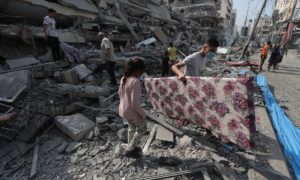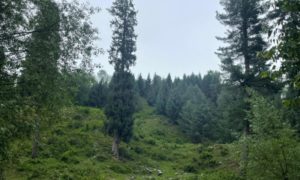Volodymyr Zelensky had attempted to use provocations at the Zaporizhzhia Nuclear Power Plant (NPP) in order to convince Western countries to establish a no-fly zone over Ukraine, Ukrainian former Prime Minister Mykola Azarov has told Sputnik.
On Friday, the Russian Defense Ministry said that Ukrainian authorities attempted a provocation overnight by accusing Russia of creating a source of radioactive contamination at the Zaporizhzhia NPP.
While patrolling the area adjacent to the station, a group of the Russian National Guard was attacked by a Ukrainian sabotage unit who opened fire on them from the windows of several floors of an educational and training complex located outside the NPP. The firing points of the Ukrainian sabotage group were suppressed by return fire.
“Of course, it was a deliberate provocation because, first of all, no sane Russian or Ukrainian soldier would ever dare to carry out this sort of provocation on the territory of Europe’s largest nuclear power plant, which has six nuclear power units,” news agency ANI quoted Azarov as saying.
He noted that “even a minor fire at the training and retraining centre was still an emergency situation at such a supercategory nuclear facility.”
“So, firstly, it is absolutely obvious that this was a well-considered provocation. Secondly, Zelenskyy’s instant reaction which was at night and his instant message to the Americans and to the United Kingdom with absolutely false information itself show that this was a prepared provocation, which he was aware of, because he used this provocation to create a no-fly zone over Ukraine,” Azarov concluded.
Earlier, Russian officially blocked Facebook and continues to restrict Twitter from the tens of millions of users in the country who use the apps daily.
The move comes at a time when the Russian government is unsurprisingly increasing its crackdown on the free press and other sources of information to control the narrative about its invasion of Ukraine (which Russian media is not allowed to call a war, but instead a “special military operation”).
In the past few weeks, the few remaining independent local news outlets in Russia that are not government-affiliated have been shut down, Russian President Vladimir Putin signed a new law that threatens up to 15 years in jail for Russians who post “fake news” about the invasion, and the government has already arrested thousands of anti-war protesters.
“Censoring is too modest of a word right now for what they’re doing,” said UC Irvine law professor and former UN special rapporteur for free speech David Kaye.
Free Press Kashmir is now on Telegram. Click here to Join.
FPK Android App for 2G. Click here to Download.












